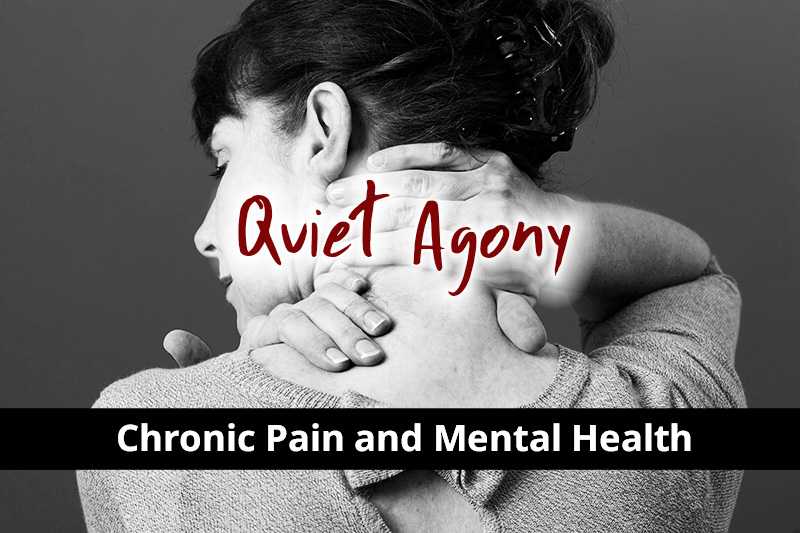
Quiet Agony: Chronic Pain & Mental Health
The Calli InstituteRemember some physical pain you have had in the past. Hitting your funny bone, a sprain, headache, stomachache, or even a broken bone. There might have been some initial intense pain; choice swear words, a certain amount of time to heal, possibly some accommodation as a bandage, sling, limited driving, food restrictions, or movement restrictions etc. Except for the obvious bandage etc, there is no clear visual that you have been hurt. You recover from that experience, and your life resumes.
Imagine this.
Now imagine that the previous pain experience doesn’t lessen or go away, but lasts for weeks, maybe months, or longer. Consider how the length of time would add to the experience and how it would impact your life. There might be some discomfort, some difficulty in completing things you could normally do easily. There might be certain activities you are not able to do at all for some time. You might have to alter your physical or social activity.
Imagine this.
Chronic pain is described as any pain lasting more than three months. The pain can progress to the point that the pain persists long after the original injuries heal.
According to the 2012 Survey National Health Interview Survey, 25.3 million adults in the United States have suffered some from pain that lasted over three months. The study found that 17.6 percent of American adults suffer from severe levels of pain. That translates to millions of adults who are dealing with chronic pain.
Chronic pain doesn’t exist without some collateral damage and other co-occurring issues. Those suffering from chronic pain usually report depression and anxiety.
Psychiatry Investigation 2015 Jan; Pain and Depression: A Neurobiological Perspective of Their Relationship explores the neurobiological relationship between chronic pain and depression, as well as explaining the neurological factors with both pain and depression.
Clinical symptoms that often appear with chronic pain are changes in sleep, appetite, mood, and energy. Sleep deprivation and inadequate nutrition over time will have long-term effects that can be an additional source of medical and clinical attention.
The Institute for Chronic Pain (ICP) wrote an article that was within a series on chronic pain. It described the interaction between chronic pain and anxiety. Understanding Chronic Pain: Complications and Anxiety Complications (Understanding-chronic-pain/complications)
Anxiety is an adaptive response that alerts our system of possible danger. Pain is also a warning sign that signals the need to protect and guard against further injury. The flight, fight, or avoidance responses can then become chronic themselves. Pain becomes a focus of attention and decisions are then based on how much pain a person feels. The cost to self-esteem, personal and work relationships can be huge.
Pain management programs usually include cognitive behavioral therapy, antidepressant medications, relaxation exercises, and some form of mild physical exercise. I want awareness for the person behind chronic pain.
I had hip surgery over three years ago. I don’t remember the pain connected with it and had resumed my life. I am now dealing with rotator cuff surgery and am reminded of the lessons I learned then. Daily activities like dressing, bathing, planning for groceries, taking care of my dog, and transportation are tasks I did not have to think about before. My sleep is compromised, and my attention is more often on the pain in my arm. I have to ask for help, which is difficult for me.
I am lucky; for there will be an end to this chapter, and I will resume most normal activities. I respect the daily struggle of those who will have to manage their pain long after mine has subsided.
I am now a regular Lyft passenger, because I am not driving. One of my drivers and I were talking about the issue of chronic pain as his wife struggles with long-term pain connected with a driving accident. He talked about what he witnesses with her struggle to dress, bathe, and get out of the house. “I see her quiet agony.”
For all those struggling with quiet agony, we need to see you more.
